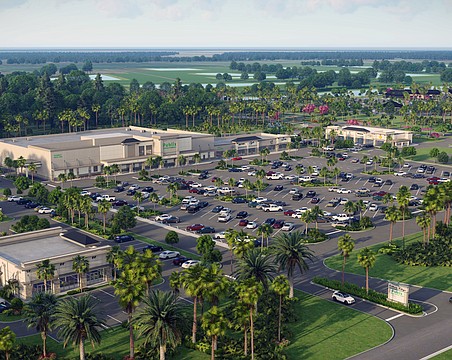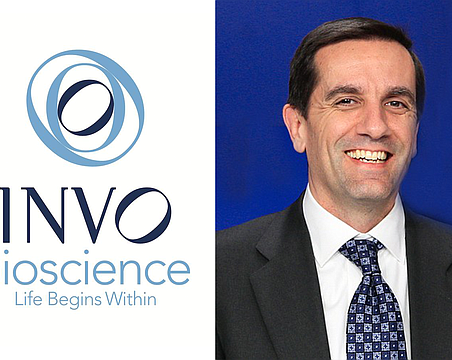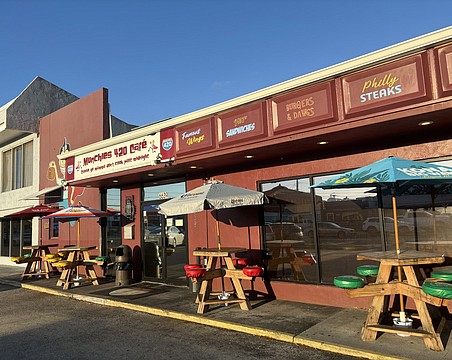The way Steven McCraney sees it, Florida is in the midst of an industrial revolution.
Not one with smokestacks or assembly lines, but one that contains both a geographic and paradigm shift in retailers' logistics that could influence real estate development and consumer fulfillment for decades to come.
To capitalize on the phenomenon, McCraney has proposed a 1.34 million-square-foot industrial real estate project consisting of four buildings on a 70-acre tract in Plant City, along the Interstate 4 corridor from Tampa to Orlando.
“The last 50 years I think have been all about the Interstate 95 corridor,” says McCraney, president and CEO of McCraney Property Co., a West Palm Beach-based firm that also has an office in Orlando.
“That market's hitting maturity, though. Industrial real estate will, I believe, be focused in Florida over the next 50 years on the I-4 corridor. It's poised to grow massively, and I think it's sustainable.”
He contends, too, that the trend reaches beyond the Sunshine State. McCraney says Florida, now the nation's third most populous state, has supplanted Atlanta as the Southeast U.S.'s premier distribution nexus.
“If you went back 20 years, supplying goods to market was always done by a hub and spoke system, and Atlanta had traditionally been that hub,” McCraney says. “Today, that hub is Central Florida.”
 As a result, McCraney doesn't intend to wait for tenants to commit to kick off his company's County Line Logistics Center at Fancy Farms project, situated at County Line and Rice roads, in Plant City.
As a result, McCraney doesn't intend to wait for tenants to commit to kick off his company's County Line Logistics Center at Fancy Farms project, situated at County Line and Rice roads, in Plant City.
McCraney plans to build on spec, so as not to miss any opportunities with tenants that may enter the Central Florida market.
“Companies are finding that in order to compete they have to get off the bench,” McCraney says. “Some don't have time to wait for a build-to-suit opportunity. They understand they'll miss transactions if they don't have product to distribute from.”
Perhaps not surprisingly, McCraney isn't alone in that belief. Lakeland-based Central Florida Development also has constructed a 100,000-square-foot spec building in its County Line Commerce Center, in Plant City, and has plans to start another similarly sized building next month.
Even more recently, Atlanta-based TPA Group began work on the Grand Oaks 75 Business Center, in Riverview. As part of the 500,540-square-foot project, TPA is planning to build a 168,000-square-foot spec distribution center and complete it next year.
The new spec wave comes as companies such as Amazon, Wal-Mart Stores, Southern Wine & Spirits, Rooms to Go, FedEx and O'Reilly Auto Parts have followed Publix Super Markets Inc. in establishing major distribution centers in or around Plant City and Lakeland.
At least a dozen other companies are said to be looking for space in the I-4 corridor for 100,000 square feet or above from which to truck goods, as well.
“Demand has been good, and the I-4 corridor is proving itself to be an excellent location,” says Rick Narkiewicz, a senior managing director with commercial brokerage firm Newmark Grubb Knight Frank who specializes in industrial properties and is marketing Grand Oaks 75 for TPA.
“There have been more million-square-foot deals done in the last two years than in decades, so I think there's enough room for TPA, McCraney and Central Florida Development.”

McCraney Property Co., of West Palm Beach, envisions its four-building County Line Logistics Center at Fancy Farms will total 1.32 million square feet.
McCraney's $80 million project is one of only four sites between Tampa and Orlando that can accommodate a 1 million-square-foot user, he says.
But McCraney also thinks that the nature of users is fundamentally changing, even as companies explore the relatively new frontier of the I-4 corridor.
Specifically, he says Amazon and Wal-Mart are at the vanguard of a new retail system that no longer exclusively requires brick-and-mortar stores to succeed.
“E-commerce warehousing is the new retail,” he says. “It's driving all the major growth along I-4, and it makes sense, because what really matters is, where are people opening the boxes that are shipped?”
McCraney hopes to break ground on County Line Logistics Center within the next three months, and deliver the first of the four buildings planned there in mid-2017. He expects rental rates to be in the range of $5.50 per square foot.
The smallest of the four buildings will measure 131,200 square feet; the largest is designed for 876,240 square feet, though McCraney says each can be adjusted somewhat to accommodate an individual user's needs.
Ceiling heights will range from 28-foot clear to 36-foot clear in the largest building. Higher ceiling heights are significant because they allow users to stack goods and operate in a cubic-foot capacity.
And while County Line Logistics Center will be among a select number of regional developments to be built without tenants in place, the project will follow a pattern for McCraney.
In the past year, the company has either completed or begun work on 1.3 million square feet of industrial space in Central Florida.
“When you look at I-4 throughout the recession a decade ago, everything slowed, to be sure, but Lakeland had some of the lowest vacancy rates in the nation then, because it's been established as a hub for big box development,” McCraney says.


 As a result, McCraney doesn't intend to wait for tenants to commit to kick off his company's County Line Logistics Center at Fancy Farms project, situated at County Line and Rice roads, in Plant City.
As a result, McCraney doesn't intend to wait for tenants to commit to kick off his company's County Line Logistics Center at Fancy Farms project, situated at County Line and Rice roads, in Plant City.




